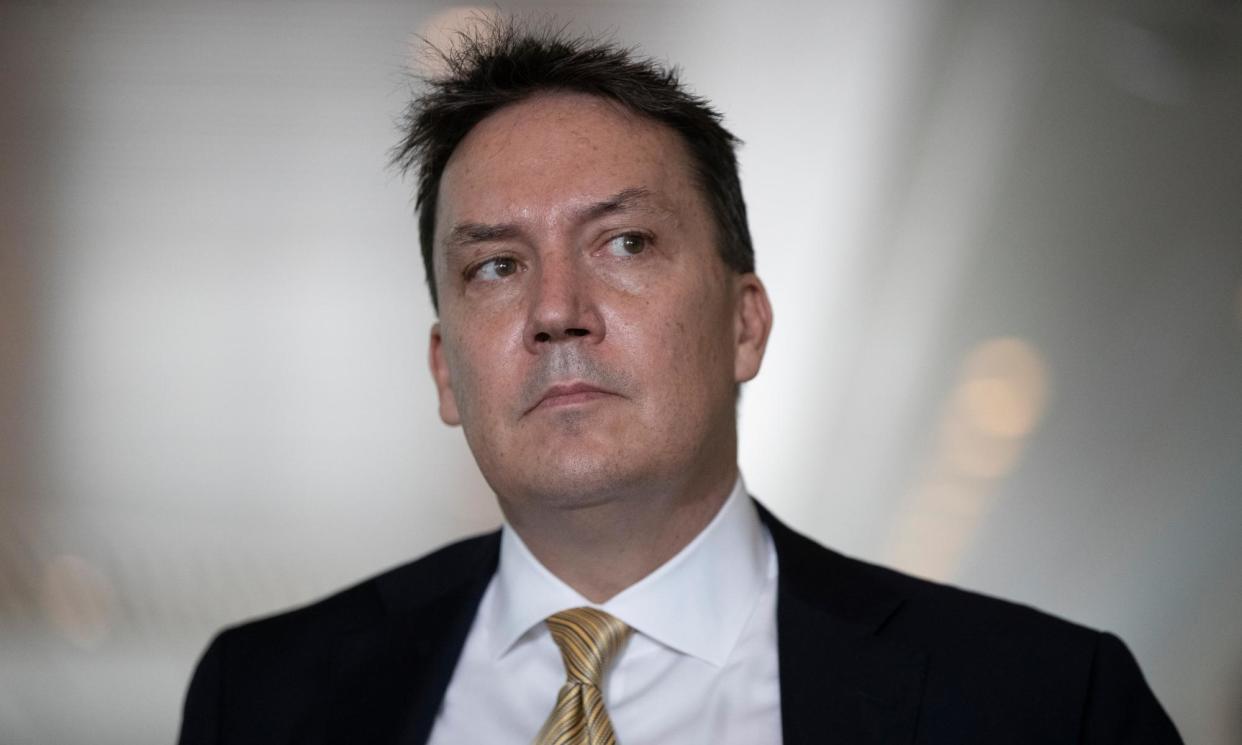Libertarians take a page out of Greens’ playbook in bid to ‘gobble up’ disaffected Liberal voters

The New South Wales Libertarian movement is taking political plays from arch rivals in a bid to become to the Liberals what the Greens are to Labor, after unexpected success at the state’s council elections.
John Ruddick, NSW’s sole Libertarian MP, said the strong local government election results had buoyed the party and it would now seek to gain more seats in both houses of parliament at the upcoming federal and state elections.
Ruddick said he believed Libertarians could “gobble up disaffected Liberal party votes” and consolidate the “rats and mice” parties to the right of the Coalition.
“Generally speaking, there’s no party more opposed to the Greens than the Libertarians, but we very much admire their political strategy,” he said.
While the party has typically only garnered about 1 to 2% of the vote at elections over the past decade, Ruddick said the weekend’s council election results have Libertarians believing that “we can do a lot better than that”.
“We want to become a 10 to 12% party on the right and we want to do what the Greens have done to Labor,” he said.
“The Greens have dragged Labor to the left. We want to drag the Coalition to the right, the pro-free market right.”
Related: Mixed bag for Labor and the rise of the Libertarians: the key surprises in the NSW local elections
Ruddick said growth was possible for the Libertarian party, especially in men under 40 who feel their “employment prospects are hampered because of their gender”.
The Libertarians – formerly known as the Liberal Democrats – have advocated for small government, a “laissez-faire” approach to town planning and campaigned against the “woke agenda”.
While counting continued after the council elections held on Saturday, it was clear by Tuesday that the party could have up to 15 councillors across the state and take control of MidCoast, a major regional council.
Libertarians will pick up two spots in Camden, with an outside chance at a third.
Labor’s Sally Quinnell represents Camden at the state parliament. She said the Libertarian party ran a very effective, simple campaign and was not surprised it resonated with constituents.
“People were looking for a right-leaning alternative and they found it,” she said.
Quinnell, whose husband ran on the Labor ticket on Saturday, said people were moving away from major parties and they needed to be taken seriously.
But election analyst Ben Raue cautioned against using the council elections as a strong indicator given how many Liberals were missing from ballots after the party’s nomination debacle.
“They won seats but … it correlates almost perfectly where the Liberals didn’t nominate,” he said.
“They have a history of people getting confused, and in this case, it doesn’t even have to be confused and it can just be a rational, conscious conservative voter who is like, ‘Well, my main options are not on the ballot, I’ll vote for someone else.’”
He said it was “good for them organisationally in terms of building a party machine” but it was not a precursor to “big votes” in future polls.
Libertarians will run at the upcoming Hornsby and Pittwater byelections but will not run in former premier Dominic Perrottet’s seat of Epping to avoid angering the Liberals by splitting the vote, according to Ruddick.
“While we are critics of the Liberal party, we still sort of are their little brother, and we don’t want to be responsible for them losing the seat,” he said.
The state premier, Chris Minns, on Tuesday warned against dismissing the Libertarians as a “flash in the pan” and said the election results should serve as a wake-up.
“They’re going to grow in political prominence in NSW,” Minns said. “They’re going to be a bigger presence on the political scene in the years ahead, I think particularly for young people.”
Before the council elections experts including Benjamin Moffitt, associate professor of politics at Australian Catholic University, released research that found the Libertarian party was the “most significant fringe group” running.
Moffitt said Minns was right that there was an appeal to the Libertarian ideology at the moment, seizing on the idea of “freedom” in the wake of the pandemic.
“You may not agree with their ideology but it’s a coherent ideology,” he said. “But we also can’t ignore the fact that they’ve done so well in time when the Liberals stuffed up so badly in nominating.”


